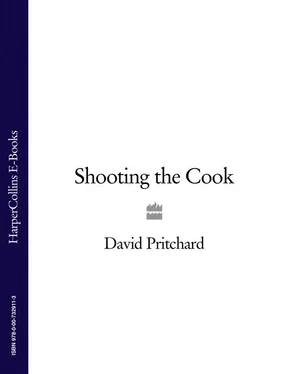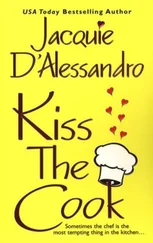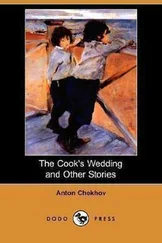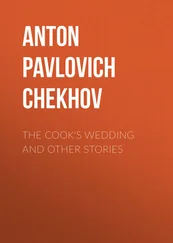Well, of course, I read the review—and then I read it again—desperately looking for something good that would stand out. I was searching for words like ‘innovative’ and ‘brave’, but the more I read it, the more I realized that the only good thing in there was the question mark. Something deep inside me told me not to touch these critiques that seemed to be everywhere; leave them where they were, and after a few weeks they’d shrivel up to brittle pieces of unreadable parchment, fall off and float away like autumn leaves, never to be seen again. As it happened RPM went on to be a big success and ran for eight years.
Over the years I had decided that there are four ingredients in the cocktail that is essential to the well-being of any television producer or director. One: an enquiring mind. Two (not surprisingly): imagination. Three: loads of passion. Four (and this was the big one): a total belief that whatever you do is going to be a resounding success. Optimism plays a large part in a director’s bag of tricks. I’ve known directors waxing lyrical about the dullest of concepts. One of my friends spent over four years making a film about the construction of the Scottish Parliament building and he was as passionate about it as if he was making Life on Earth . I suppose in 400 years’ time it might be quite interesting to see.
Also, I strongly believed in regional broadcasting, and still do, despite the fact that it has often been decimated over the last few years. I know that many executives and programme makers at the BBC in London think of the staff in the regions as rather like irritating sand fleas, but I see regional TV as a great place to experiment with new talent. Floyd , I thought, would never get off the ground in London. Most food programmes in those days came under the auspices of the Education Department and Floyd certainly wouldn’t have made for a good proposal on paper. I could imagine a committee discussing the glasses of wine and the haranguing of the cameraman. I’m a great optimist, but I don’t think they were quite ready for a culinary version of Reginald Bosanquet.
No, my plan was to make the programme with Floyd first and let the great and the good decide afterwards whether it worked or not. After all, as BBC features editor for the south-west, I was lucky enough to be my very own commissioning editor. So I didn’t have to convince anyone, except myself, which was why, that afternoon, I was sitting on a train on the way to London, running scared.
The only thing to do in a situation like this, I had decided, was to consult someone whose opinion I really treasured. This could be a pretty risky strategy, but I was desperate, because I had already commissioned myself to make a further five programmes with Keith Floyd. I was on my way to seek the opinion of one of the most talented producers in the land at the time, my good friend and mentor, John Purdie. John made the award-winning fly on the wall series Sailor , filmed on the aircraft carrier HMS Ark Royal .
Armed with a video cassette and a bottle of champagne bought from an off-licence in Chelsea, I arrived at John’s houseboat on the Thames. When he opened the door his little beady eyes lit up at the sight of the rather handsome bottle of Mumm. There are times when John reminds me of Captain Pugwash. He’s even got a parrot.
In the snug sitting room on the barge I told John what I’d heard on the open talkback in the videotape room earlier in the day. I couldn’t help but think that, for all our friendship, he was secretly enjoying my moment of intense insecurity. ‘Schadenfreude’, that lovely German word, is alive and well and thrives in the world of television. Although they pretend otherwise, television people love it when one of their friends makes an absolute turkey of a programme. After reading and savouring every ounce of vitriol in the newspaper reviews, they say things like, ‘I haven’t actually seen the programme but I’ve got it recorded and I’ve heard some good things about it. Is there anything in the papers?’
John covered the parrot’s cage with a grey blanket. In my paranoia I thought it was because the parrot might leap from his perch and start stomping around the bottom of his cage shouting out what a load of crap my programme was, but I was assured it was only in order to have an uninterrupted viewing. I charged our glasses, lit a cigarette and waited while the video clock ticked its way to zero.
The opening titles saw our chef quaffing a glass of wine aboard various boats and fishing on the Somerset Levels, cooking and laughing his head off. All this joyous imagery was accompanied by the Stranglers anarchic ‘Waltz in Black’. John watched unblinkingly, giving nothing away.
All television editors, directors and producers hate ‘viewings’, the tense affair when the commissioning editor or head of department casts their judgemental eye on a production that has inevitably taken months of blood, sweat and tears to create. Copious note-making by the boss is usually a serious sign of failure, spelling grim and uncertain times ahead for the producer and director.
I noticed that John had hardly touched his glass of champagne while I’d nearly finished the whole bottle, a most unusual state of affairs. But at least he wasn’t making notes. Eventually, shortly after the scene where Keith Floyd says to the cameraman, ‘Look, don’t put the camera on me. Put it down there on the blinking scallops. Don’t you understand, you idiot…it’s all about food? You simply can’t get trained staff these days!’ the screen went blank. John had switched the recording off. It was supposed to run for half an hour but after twelve minutes or so it seemed that my friend and mentor had had enough.
I think it’s worth a small gastronomic detour at this point to explain why John’s opinion mattered so much.
I first worked with him in Hong Kong in 1976 making a series about the police called The Hong Kong Beat. He was a highly respected director and I was his researcher. Until then I hadn’t been further than Lloret de Mar on a Club 18–30 holiday, so this hot and steamy colony in the South China Sea came as a bit of a shock—an extremely pleasant one. When we weren’t in the back of police Land Rovers hoping for murder and mayhem (sadly I’m ashamed to say this is true) we would be in the street food markets that surrounded our hotel in Kowloon. I’ve been back to Hong Kong since and most of these street stalls have been swept away, but back then they were everywhere. For me they were the main attraction of the place, along with the Star Ferries which plied their way between Hong Kong Island and the mainland.
There was so much to choose from at the markets. Red ducks dripping with fat, and hunks of pork, the crackling cooked to golden perfection, hung from the frames of ramshackle counters. We’d normally be served by unsmiling, crew-cutted old men tossing a whole variety of vegetables and noodles in huge woks that, now and again, briefly caught fire. The stoves roared like jet engines, pushing out tremendous heat, so everything cooked quickly, which, of course, is the whole secret of this style of cooking; and the food was so cheap. Our mouths watered so much with anticipation that it became impossible to talk without spraying each other. This was the most delicious food I had ever tasted, and the combination of spicy noodles, crispy green vegetables, pork, duck, and prawns was light years away from any Chinese takeaway I’d ever had back home.
John was a true trencherman and like me had a ferocious appetite. Sometimes in the car driving back from filming in the New Territories, the country area by what was then the Chinese border, we would make up songs about how hungry we were. One day, John, in his soft Scottish burr told me about a restaurant he’d been to where the speciality was Peking duck. He described what he’d eaten: the soft pancakes smeared with plum sauce, the sweet crispy skin of the duck and the crunchy match-sticks of cucumber and spring onions. The way he described it, he had to take me to this restaurant now. Nothing else would do.
Читать дальше












